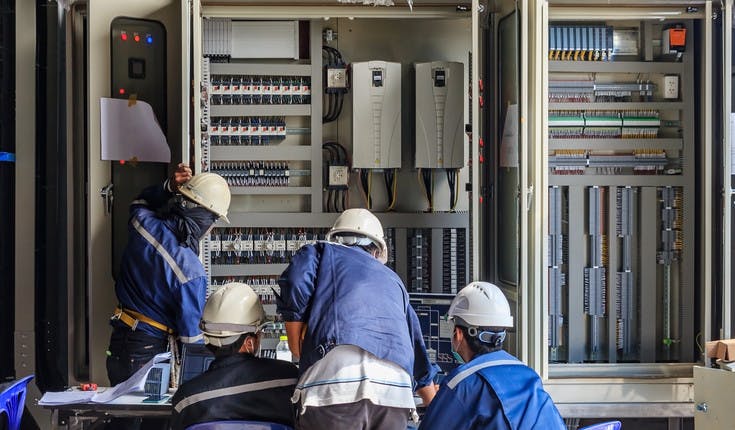The Importance of PLC and SCADA in Instrumentation and Electrical Industries
The Importance of PLC and SCADA in Instrumentation and Electrical Industries
Feb 23, 2020

Within a short space of time, automation practices have become an integral part of the overall process of many industries, particularly, the instrumentation and electrical industry. The importance of PLC in automation is becoming more and more apparent, and necessary.
What is PLC?
A PLC, or a Programmable Logic Controller is a logic controlling device which helps in controlling several functions in an industrial system. The primary function of this device is to continuously be in touch with the input devices and to make important decisions based on the custom program with respect to the condition of input devices.
A microprocessor is present in the PLC which holds the program written in computer language. This program is further transferred to the device using a cable. The program is stored in the non-volatile memory of a PLC. For user convenience, a visual programming language named Ladder programming was created to program the PLC. The main advantage of PLC is its capacity to change and replicate particular operations while gathering or sending important information. Another advantage of a PLC is its flexibility. The user has the option to choose between various input and output devices which best fits their needs.
What is SCADA?
Supervisory Control and Data Acquisition Control, or SCADA, helps to monitor all industrial processes from a central location. The location can be either local or remote. These devices can directly interact with many other systems with the help of the Human Machine Interface (HMI) software. It is also a type of auditory device since it logs everything into the system. The complexity of the SCADA system is relative to its purpose, which is its greatest advantage. It can control an incredibly complex or an easy system, depending on user needs.
PLC and SCADA in the Instrumentation and Electrical Industries
PLC and SCADA are used extensively in oil and gas facilities, mineral processing, chemical, factory automation, brewing, water and sewage treatment plants, they are used for flexibility, modularity and reliability. There are specific features of PLC’s that make them the preferred choice for industries that rely on these systems, such as:
- Easy to program
- Unified programming environment
- They collect robust data
- They can be used for predictive maintenance
Currently, there is a short supply of technicians and engineers with skills and competency in selection, installation, fault finding, commission and maintaining PLC’s. PMV uses, and trains students in Allan Bradley Micrologix 1000 controllers and RSlogix Micro-starter lite software, Siemens S7 200, 300 and 1200 (TIA complaint) hardware and Siemens KT600 Human Machine Interface with WinCC SCADA software, Rockwell Automation MicroLogix 500 and 5000 and Wonderware Intouch SCADA software.
PLC Training Available from PMV
PLC is a vast topic and we have only touched on its brief introduction. PMV offer a variety of PLC Training options, providing you with a chance to fully grasp and understand it. For those of you who are trying to get into a career in industrial automation, this is the best platform for you to learn PLC automation.
Our training is a blended delivery of 70% hands-on, practical training and 30% theory, you will get a chance to work on a real PLC, in our purpose-built skid, like what you are expected to see in the workplace.
Full qualifications we offer, involving PLC and SCADA:
- UEE40420 Certificate IV in Electrical Instrumentation
- Funded training available in QLD and SA only
- UEE31220 Certificate III in Instrumentation and Control
- *UEE40420 is an entry requirement to UEE31220, it must be completed first.
Short courses we offer, involving PLC and SCADA:
- PLC Automation Short Course – Basic*
- Funded training available in QLD only
- PLC Automation Short Course – Advanced
- *PLC Short Course – Basic, is an entry requirement to PLC Short Course – Advanced, it must be completed first.
Recent Post
Mar 14, 2024
